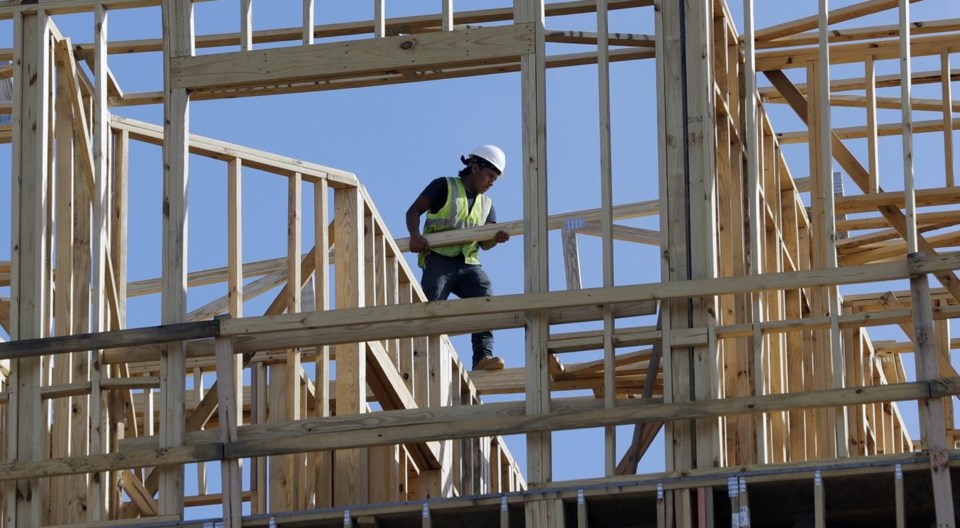Greater Sudbury is considering cutting development charges in half – and may consider eliminating them entirely.
Meeting on Tuesday, the city's finance and administration committee voted to have staff prepare a report on the implications of reducing or eliminating the fees, which have been blamed for the slowing residential other construction in the city.
Development charges – the fees builders must pay when they want to build – soared in 2009 under former Mayor John Rodriguez. Developers began complaining soon after that the charges were a major impediment to building projects.
At a 2016 meeting to discuss freezing the charges, Laura Higgs, of the Sudbury Home Builders Association, said construction in Sudbury has been declining since 2009, when the charges soared from about $3,000 per home to more than $14,000.
Higgs said the market is so tough, there's a lack of younger developers entering the industry and there's a danger they could start sliding backwards.
“We work in a competitive industry that is heavily regulated, and getting more so,” she said, adding that builders are at the mercy of “decisions beyond our control.”
While they're used to the cyclical nature of the mining industry, she said more regulations, higher costs and fees, along with the mining slump is taking its toll on builders.
“You might say, death by 1,000 cuts,” Higgs said. “We encourage you to think beyond the one-year freeze.”
Currently, the charges are $17,764 for each single family home, $14,108 for a semi-detached home and $10,451 for each apartment unit. Industrial construction is charged at a rate of $4.92 per square feet, while non-industrial projects pay a rate of $9.40 per square feet.
The city's development charges bylaw must be updated every five years, with a new bylaw needed by this June.
John Hughes, of Hemson Consulting, did a study (https://agendasonline.greatersudbury.ca/index.cfm?pg=feed&action=file&agenda=report&itemid=2&id=1365 ) on what the new bylaw should look like in the city. Hughes told members of the finance and administration committee Tuesday the principle behind the charges is that the cost of the infrastructure required to maintain new development should be paid by developers, not taxpayers.
“As you grow, you need new infrastructure,” Hughes said. “It shouldn't fall on existing taxpayers to pay for that.”
Hemson's study estimates the city will collect about $55 million over the next 10 years from the charges. Council can lower rates, Hughes said, but that would have implications for property taxes. Market conditions – demand for housing – drives construction, he said, not the presence or absence of development charges. And, Hughes said, Sudbury's $17,764 charge per family home is well below the provincial average of $33,411.
But Mayor Brian Bigger said he hears from developers all the time that the charges discourage investment in Greater Sudbury.
“People are backing away from investing in our community,” Bigger said.
And while the study estimates the city will collect $55 million in fees in the next decade, since 2010 only about half of what the city expected has actually been collected — $38 million compared to the $76 million forecast.
“Or about one per cent of our tax levy,” Bigger said. “That's what we're talking about.
“We need to strategically look at reducing development charges to attract investment to our community. Our community is not growing at the same rate as the GTA.”
Ward 4 Coun. Geoff McCausland said if market demand drives construction, not development charges, why would they move those costs to all taxpayers?
“Developers, of course they don't want development charges,” he said. “It affects their bottom line ... But we have a lot to offer here. We shouldn't be giving it away.”
But Bigger argued that reducing development charges would help attract industrial and other types of business investment. With the city's population expected to grow only modestly in the next decade, the city should do what it can to attract new business investment – and the fees discourage that.
Ward 5 Coun. Bob Kirwan wanted to go a step further and see the effect of getting rid of them entirely.
“What happens if we don't have any?” Kirwan said. “I'd like to explore the idea of eliminating it for five years.”
Staff is preparing a report on the impact of reducing the charges would have on city financing, ahead of a public meeting on the new development charges bylaw scheduled for May 7.
